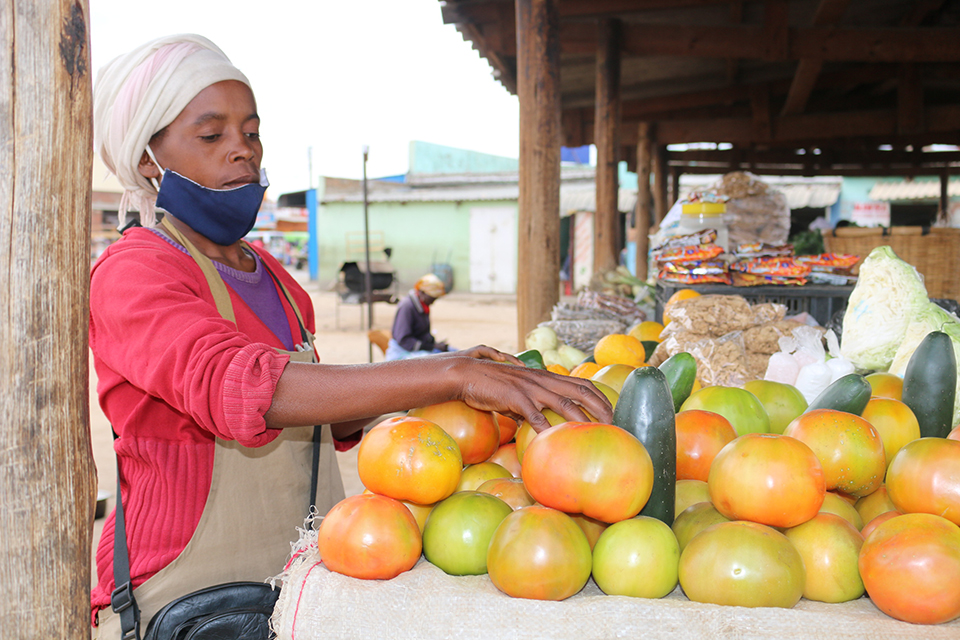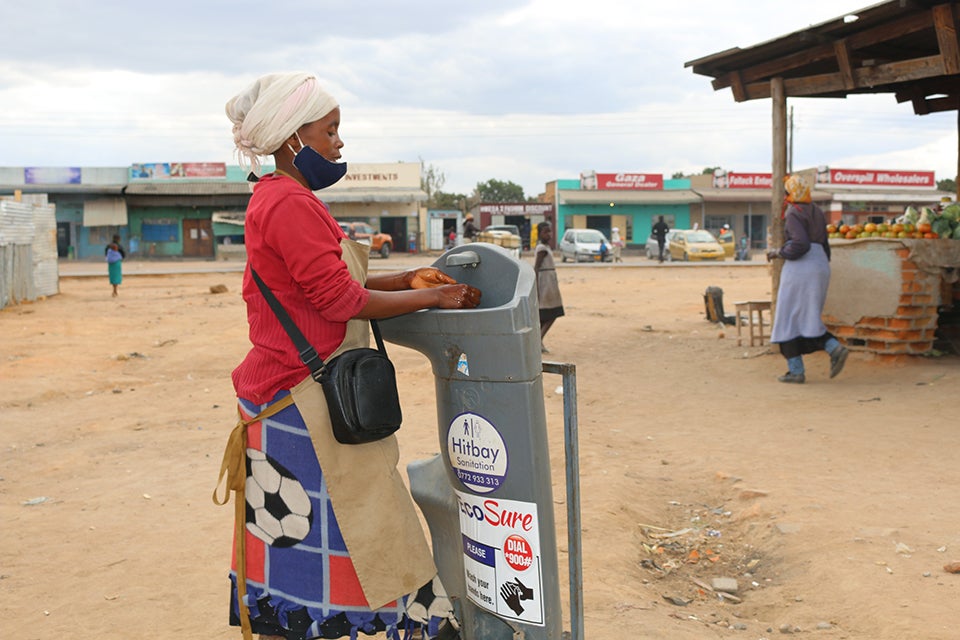UN Women Partners with Private Sector to Improve Hygiene at Safe Markets
In the wake of COVID-19 outbreak and restrictions in movement the local vegetable markets provide multiple roles. While they offer convenience in accessing fresh produce, sustain women vendors as their source of livelihoods, they are also a potential source of contamination and spread of the coronavirus.Date:

Tsungai Mugariwa has been surviving on selling tomatoes and vegetables at Overspill Market place located just outside of Zimbabwe’s capital, Harare. She is conscious that her produce needs to be kept fresh and clean, but this comes as a huge cost and burden to her.
“It is somehow difficult and expensive for us to protect ourselves as we purchase a bucket of water for ZWL$5 and at the same time we must travel a distance to fetch the water. It is challenging for us to balance the task of both getting the water as well as attending to customers”, she narrated.
UN Women Zimbabwe with the support of Spotlight Initiative has partnered with the private sector to ensure that the opening of the informal market is accompanied by hygienic measures to reduce the risk of spreading coronavirus.
As part of the broader strategy to ensure public-private sector partnerships, the country office in Zimbabwe in partnership with Ministry of Women Affairs, Community, Small and Medium Enterprises Development supported by Cassava Smartech has stationed hand-washing basins and mobile toilets at a market in Epworth and other strategic points including water points, clinics, and shopping centres.
“Our customers are able to wash their hands before touching the fruits and vegetables and we are also happy for the provision of the washing basins with sanitizers, we can now frequently wash our hands. We handle a lot of money that could be infected with coronavirus while, our fruits are handled by so many people hence the washing basins facilitate the practice of good hygiene” said Tsungai who also coordinates the supply of water to the basins.

Epworth Local Board is one of the local authorities that are working on the safe market model to invest in engendering urban planning, including public infrastructures, such as markets. The Local Board Town Secretary Dr Wilton Mhanda said the partnership assisted the local council in adhering to safe and functioning food markets.
“The handwashing facilities were positioned at a marketplace, four clinic entrances and three business centres. They are servicing close to 150 people per centre, translating to a daily reach of over one thousand Epworth residents benefiting from sanitation facilities”, he said.
“The hand washing basins and mobile toilets improve water supply and sanitation as we strive to ensure the livelihoods of the women by keeping the informal markets open and COVID-19 compliant”, added Dr Mhada. “We are also grateful for the partnership with UN Women which has resulted in the provision of an additional 16 mobile toilets by HitBay Sanitation at other business centres in Epworth.
UN Women Zimbabwe is working with private sector partners to promote gender equality and the empowerment of women in the prevention and response to the COVID-19 pandemic. The strategy involves resource mobilization and partnership development to advance and support UN Women’s mission and strategic objectives. Cassava Smartech through their subsidiary EcoSure has provided hand washing basins in urban public places to promote sanitation and cleanliness that help prevent the spread of the virus.